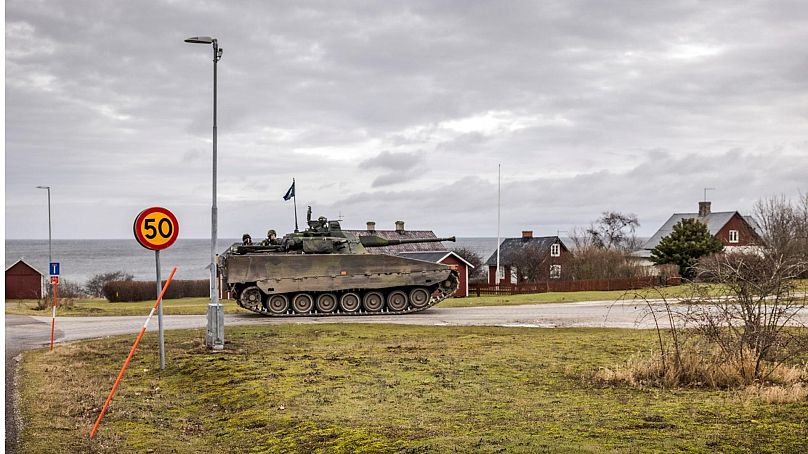This Swedish holiday island could be on the verge of Russian invasion

As Sweden ponders joining NATO, a remote holiday destination in the Baltic Sea is once again bolstering its defences.
Known as a paradise isle of unspoiled wilderness and sandy beaches, Gotland has long been a popular vacation spot for many Swedes.
Complete with Viking-age settlements and iconic rock formations, the 170-kilometre outcrop attracts over two million visitors every year to enjoy the peace and simplicity of island life.
But just over three decades ago, the holiday hotspot served a far different purpose.
Strategically located just 300 kilometres from the home of Russia’s Baltic Fleet, it acted as a key deterrent against Soviet expansion.
And as tensions surrounding Sweden’s proposed application to NATO grow, the Scandinavian nation is rebuilding its military presence on Gotland once again.
“There will be more soldiers and more activity on Gotland,” says Colonel Magnus Frykvall, commander of the Gotland Battalion.
“We have to build a bigger and better military capacity due to the current situation.”
Will Russia attack Sweden’s holiday island?
Sweden is expected to reveal in the coming days whether it will ask to join the NATO military alliance.
Finland has declared they will apply for NATO membership within the next few days.
Coming out in favour of joining is a historic development for both nations. Sweden has avoided military alliances for more than 200 years, while Finland adopted neutrality after being defeated by the Soviet Union in the Second World War.
Earlier this week, Russia warned of severe consequences if either nation were to join the alliance. But as Putin’s war in Ukraine continues, many Gotland locals are eager to defend their nation at all costs.
“People are a bit worried, but we’re trying to keep everybody calm,” says Camilla Selander, a deli-counter worker who has joined the island’s Home Guard.
“We talk about what is happening there, but we just tell each other that it’s going to be fine.”
In a forest near Visby, Camilla and her fellow volunteers squeeze off shots from nine-millimetre pistols handed out during target practice. For now, the firing range remains the only active military site on Gotland, but memories of the island’s combative past are clear for all to see.
“One thousand machine gun nests were built here at the start of World War Two,” says Lars-Ake Permerud, a retired army officer.
“We had machine gun and cannon defences all around the island.”
Many of those artefacts are now on display in military museums, and the retired servicemen who curate the exhibitions are well aware of Gotland’s strategic significance.
“This is an aircraft carrier,” says Rutger Banholtz, former head of the Home Guard.
“He who sits on Gotland controls large parts of the Baltic Sea.”
Will Sweden and Finland join NATO?
While Sweden says it does not believe Russia has plans to attack Gotland, Putin’s invasion of Ukraine has forced the nation to rethink its security policy.
NATO membership provides safety in numbers, promising unilateral protection for all member states.
Both Sweden and Finland are expected to decide whether to apply to the 30-nation alliance very soon. Finland’s President Sauli Niinisto has announced his nation will apply, while Sweden’s ruling Social Democratic Party is expected to announce its decision later this week.
